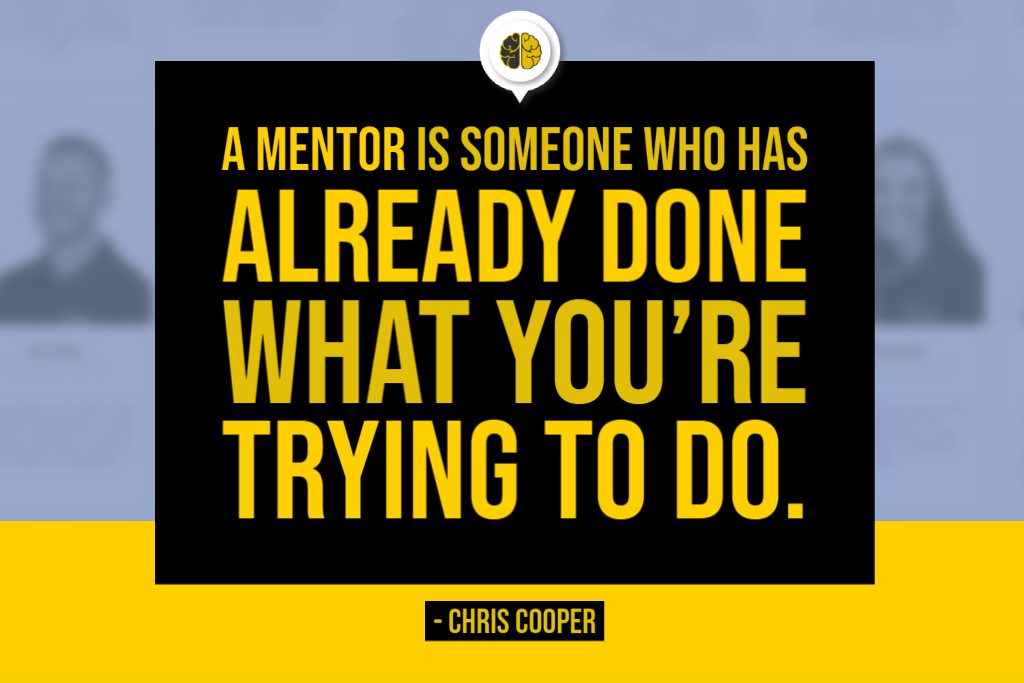I’m not the best mentor for everyone.
Just as different athletes respond to different coaches, different entrepreneurs require different mentors.
A mentor is more than a teacher. A mentor is a caring expert. A mentor is a guide. A mentor is—sometimes—a therapist. Most importantly, a mentor is someone who has already done what you’re trying to do.
Chris Cooper’s Mentors
I’ve had many mentors in my journey. The first were informal—just friends who gave me advice. I rarely acted on their advice, even though it was good, because I didn’t have any skin in the game. I wasn’t paying them. There was no risk for me, so I didn’t get any results from their opinions.
My first formal mentor cost more than I could afford. He told me things I didn’t want to hear. But I did the work (and even shared his assignments with every gym owner in the world for free) because I couldn’t afford not to.
My next mentor cost $40,000, plus travel. That was a huge leap. Again, I wasn’t sure I could afford it. But that was the only barrier, and I already knew that mentorship would eventually return more than I paid for it. This mentor was more inspirational; he gave me tools to use and helped me narrow my focus every few months to stay on track. But when things got really tough, I needed more.
My third mentor cost $1,000 per call. For a while, I was calling her every week with a specific problem to work through. Usually, these problems revolved around managing other people. She told me precisely what to say and when. The conversations resulted in some painful staff changes, but those had to happen. I shed my skin, the business evolved, and I moved on.
My current mentor is more of a “big-picture” guy. We talk about my vision, and then work backward to break down the steps to get there. And because he’s a great leader, he was an enormous help through the COVID Crisis. He taught me the CALM model of leadership and helped me deliver the things that helped other entrepreneurs most.
Through the pandemic, I also got supplementary mentorship from experts in online coaching, storytelling, negotiation, diversity and inclusion, problem diagnosis and crisis management. I spent over $230,000 on mentorship in 2020.
The Two-Brain Mission and Mentorship
My mission is to make 1 million entrepreneurs wealthy.
Mentorship is the coaching that entrepreneurs need to create wealth.
I can’t mentor 1 million entrepreneurs alone. Nor would I want to!
So the Two-Brain team has 38 different mentors on it. They hail from points all around the world. Each has a different style. All have experience as successful entrepreneurs. All have access to the data, the Two-Brain Dashboard and our Growth ToolKit. We share the same tools, but each is a different craftsperson.
In this series, I’m going to tell you how to identify the type of mentor you need right now, how to find that mentor—even if it’s not one of us!—and how much to invest in mentorship each year.
Then I’m going to tell you what to do if you can’t find a mentor or if the mentor you like best won’t work with you. Because that happens most of the time.
Other Media in This Series
“Who’s the Best Mentor?”
“How to Ask for Mentorship”
Video: “How to Choose a Mentor”

